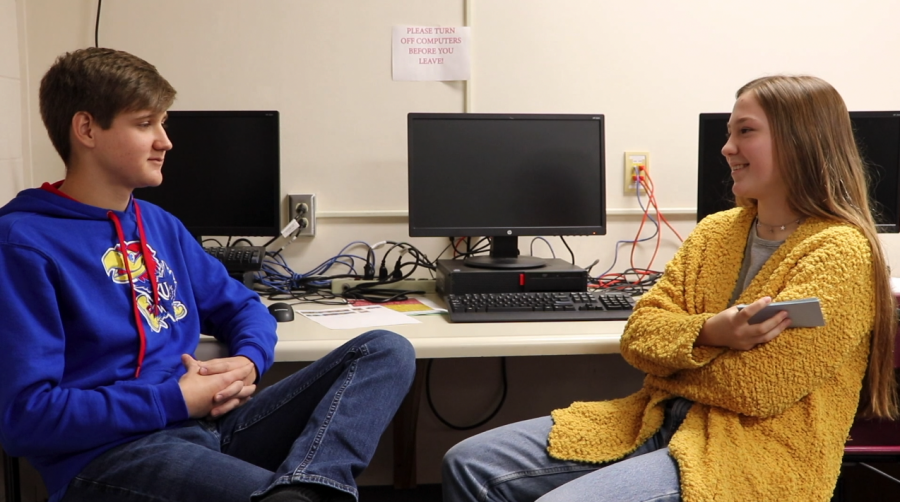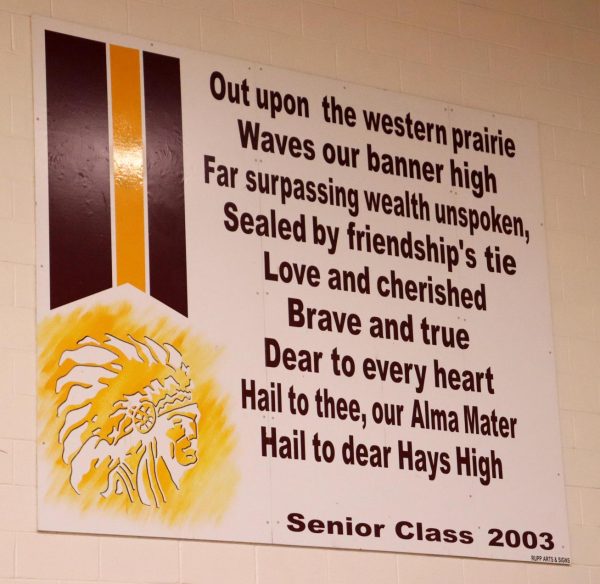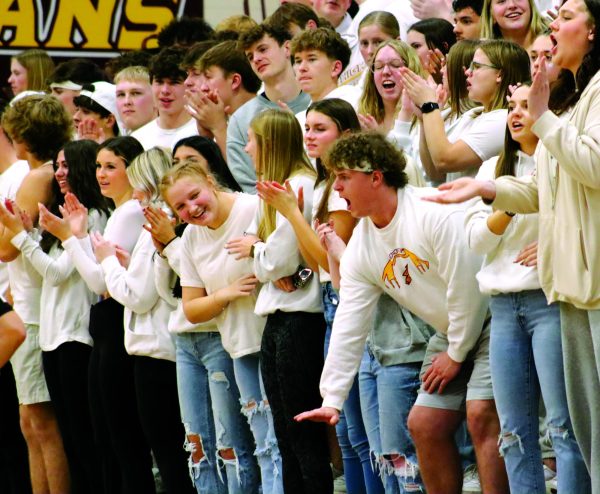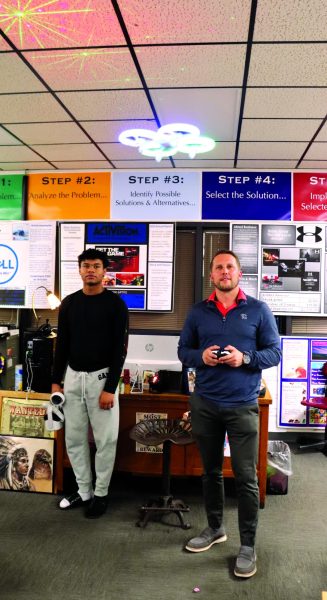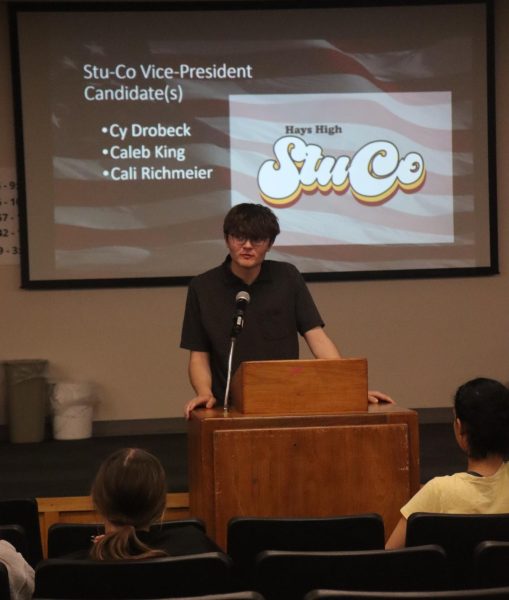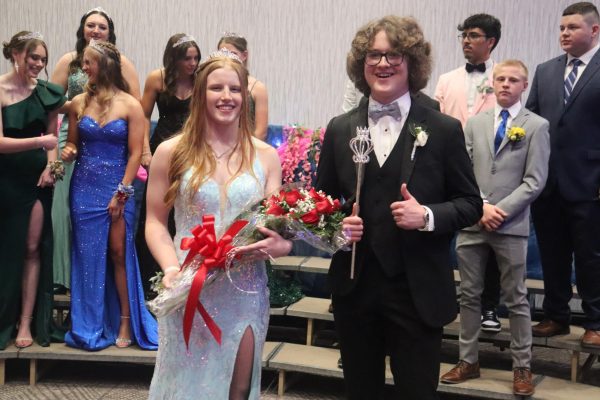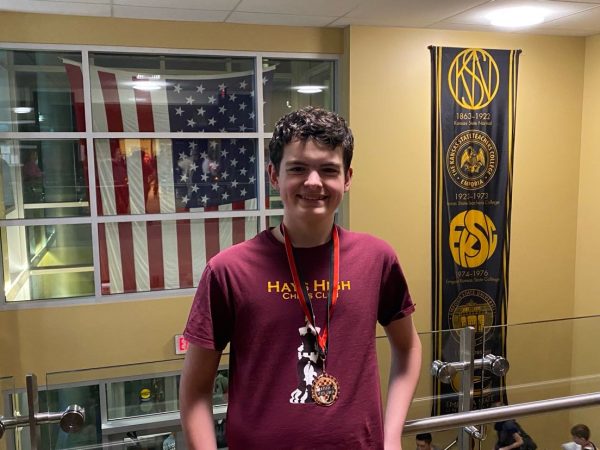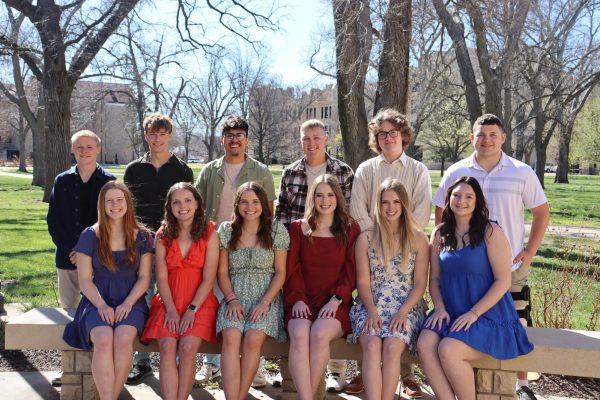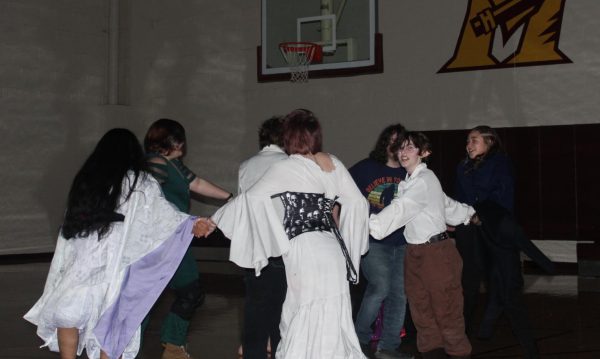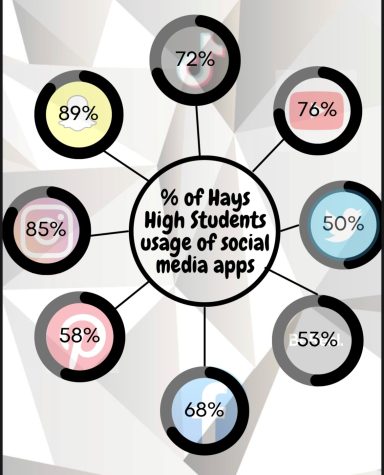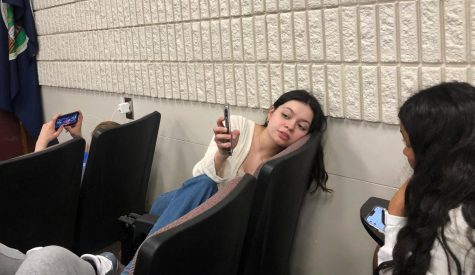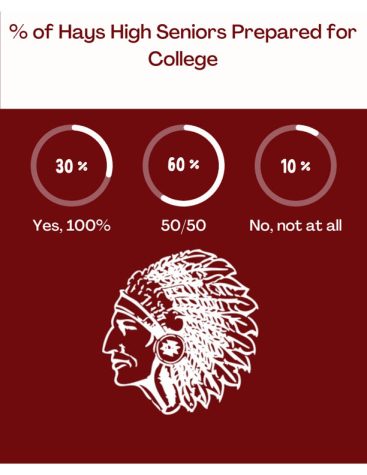Students get paired up on blind dates to test whether 36 questions can make strangers fall in love
Junior Ben Bold and sophomore Hope Schumacher answer questions together during their blind date. The pair did not know that the questions came from a New York Times article that claims these 36 questions can make strangers fall in love. All of the blind dates took place during seminar.
A 2015 New York Times article states that answering these 36 questions along with two to four minutes of eye contact can lead strangers to fall in love.
To test this thoery, The Hays High Guidon recruited volunteers to be set up on blind dates. The students didn’t know what they were going to be doing or anything about the 36 questions. Each volunteer filled out a survey concerning their interests and people were paired up based on how compatible they were.
The couples were: juniors Derrick Aragon and Paige Polifka-Denson, junior Tommy Brooks and senior Brittani Park, junior Ben Boland and sophomore Hope Schumacher, junior Spencer Marshall and freshman Allyson Werth, juniors Parker Dixon and Lauren Kent and sophomore Nic Park and junior Kaylor Meyers.
After the dates, it was revealed that the questions were designed to make strangers fall in love and the participants shared their opinions on how effective they felt it was.
In addition to getting participant feedback, Licensed Professional Counselor Aubony Chalfant weighed in on the matter.
Chalfant says that love is “genuinely wanting someone else to be the happiest, healthiest version of themselves, even if that means not being with you.”
Chalfant believes that media today can sometimes paint love in an unrealistic light.
“I think a lot of times love is shown in movies and TV as this magical moment where everything just becomes fireworks and sunshine and roses,” Chalfant said. “In reality, healthy love is being exactly who you are, flaws and all, and the other person does the same. “
Chalfant doesn’t think that these specific questions can make people fall in love, but the questions make people feel more connected to the person they’re having a conversation with, which is one of the first steps in feeling love or intimacy with another person.
“The common theme throughout all of these questions is intimacy or deeper questions than just ‘what’s your favorite food’ or something less personal,” Chalfant said. “These questions ask about innermost thoughts, feelings, desires, fears – all of which reveal our more genuine or honest self to another person.”
Revealing your true self to another person can be scary because it makes people feel vulnerable, but vulnerability is what breeds true connections and intimacy.
“I think any time you can have an open, honest conversation with someone you trust or feel safe with it’s a good thing,” Chalfant said. “I wouldn’t, however, recommend that people try this with the expectation that they are going to fall in love after asking all of these, or that someone is going to fall in love with them.”
21afeyerherm@usd489.com
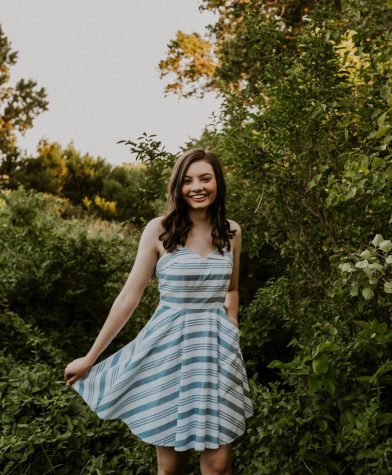
Alicia Feyerherm is a senior, and this is her fourth year in Newspaper. She is very honored and excited to be in the role of Editor-in-Chief this year....
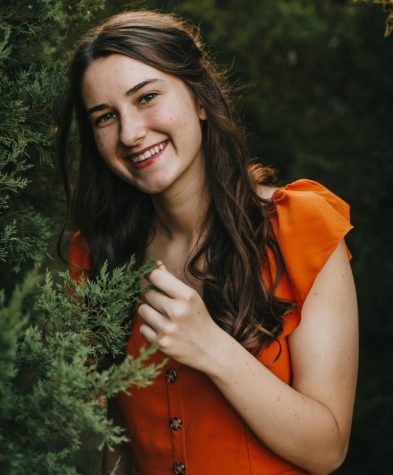
Allison Brooks is a senior, and this her fourth year in newspaper. Outside of newspaper, she is involved in DECA, Scholars Bowl, National Honors Society...


